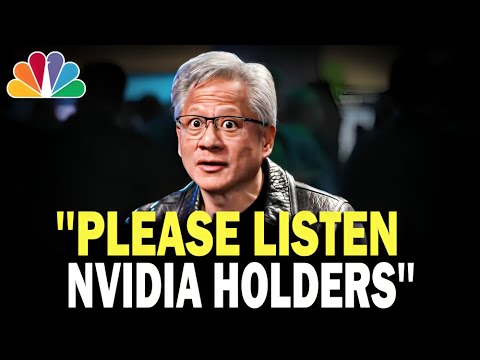The NVIDIA CEO Jensen Huang discusses the company’s shift from chip manufacturing to becoming a platform provider that integrates AI and software solutions, with a focus on enterprise applications and strategic partnerships like ServiceNow. He highlights AI’s transformative economic impact, NVIDIA’s innovative research efforts, and the importance of staying adaptable amid geopolitical challenges to drive global AI adoption and innovation.
The video features an interview with NVIDIA CEO Jensen Huang, discussing the company’s evolving role beyond just chip manufacturing to becoming a platform provider that integrates software and AI solutions. Jensen emphasizes that AI has transformed the entire computing stack, enabling the creation of highly complex agentic AI systems capable of understanding diverse data types, reasoning, and problem-solving. This software-driven approach leverages NVIDIA’s GPUs as a foundational platform, allowing the development of advanced AI models and tools that can be built upon for various enterprise applications.
A significant focus is on NVIDIA’s partnership with ServiceNow, which Jensen describes as a long-standing collaboration aimed at establishing ServiceNow as an enterprise AI operating system. They have integrated NVIDIA’s latest reasoning AI model, Apriel Neotron, into the ServiceNow platform, enabling smarter, faster AI-driven workflows within enterprises. Jensen highlights how this partnership exemplifies NVIDIA’s broader vision of creating AI that is deeply embedded across business operations, revolutionizing how companies work and innovate.
Jensen addresses the challenges and opportunities posed by geopolitical and regulatory changes, particularly regarding chip sales into China. Despite a recent $5.5 billion write-off, he underscores the importance of staying agile and adaptable to policy shifts. He notes the enormous potential of the Chinese AI market, projected to reach $50 billion in a few years, and emphasizes that supporting global markets aligns with broader economic and national interests, including job creation and revenue generation in the U.S.
The conversation shifts to the economic impact of AI, with Jensen projecting a $22 trillion influence on the global economy by 2030. He explains NVIDIA’s unique approach of offering AI tools and models freely to customers, enabling them to save or generate hundreds of millions of dollars before consumption-based charges apply. This strategy aims to foster widespread adoption of agentic AI across industries, transforming not only enterprise operations but also the products companies develop, positioning NVIDIA as a key driver of this AI-driven revolution.
Finally, the discussion highlights NVIDIA’s ongoing fundamental research efforts, including innovations like Parakeet, an open-source speech-to-text model capable of real-time transcription with high accuracy. Jensen emphasizes that NVIDIA’s research aims to anticipate future AI capabilities, such as multimodal understanding of voice and vision, and to build the necessary infrastructure for these advancements. The company’s full-stack approach, exemplified by partnerships like ServiceNow, enables it to deliver high-quality, cost-efficient AI solutions directly to enterprises, fostering innovation and expanding AI’s role across various sectors.
